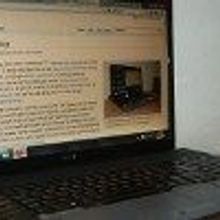plagiarism

RIKEN to Review 20,000 Papers
Jef Akst | May 5, 2014 | 1 min read
In the wake of allegations of research misconduct, the president of the Japanese research institute asks that all labs review their publications for evidence of manipulated images or plagiarism.

Speaking of Science
The Scientist | May 1, 2014 | 2 min read
May 2014's selection of notable quotes

Misconduct Found in STAP Case
Jef Akst | Apr 2, 2014 | 2 min read
An investigating committee at Japan’s RIKEN research center finds evidence of falsification and fabrication in two recent Nature papers that touted a new way to induce pluripotency.

Sloppy Notes Led to Goodall Plagiarism
Kerry Grens | Apr 1, 2014 | 1 min read
Jane Goodall’s latest book was revised to eliminate plagiarism, which she blames on chaotic note-taking.

What to Do About “Clare Francis”
Kerry Grens | Sep 14, 2013 | 4 min read
Anonymous tipsters who allege scientific misconduct can make journal editors squeamish. But should a whistleblower's identity matter?

Dermatologist Censured for Plagiarism
Chris Palmer | Aug 6, 2013 | 1 min read
A Case Western dermatologist has admitted to plagiarizing a grant she reviewed, plus taking text from eight research papers and a patent application.

The Reasons Behind Retractions
Kate Yandell | Jun 26, 2013 | 2 min read
An analysis of 244 retraction notices shows how journals handle mistakes and fraudulent behavior.

Opinion: Unethical Ethics Monitoring
David C. Beebe | Jun 25, 2013 | 2 min read
Anti-plagiarism service iThenticate breached ethical boundaries in its design and interpretation of a survey of the top ethical concerns among scientific journal editors.

More Questionable Stem-Cell Science
Chris Palmer | Jun 18, 2013 | 2 min read
Disgraced stem-cell researcher Hisashi Moriguchi has published three new papers in BMJ Case Reports, including a rehashing of a retracted 2012 paper.

Defending Against Plagiarism
Jonathan Bailey | Jun 1, 2013 | 3 min read
Publishers need to be proactive about detecting and deterring copied text.

Week in Review, May 20–24
Bob Grant | May 24, 2013 | 4 min read
Journals plagiarizing journals; new immune cells combat diabetes; TB-killing vitamin C; analog cell computers; real time fish memory; ant-pitcher plant mutualism

Rampant Plagiarism in Two Journals
Kerry Grens | May 22, 2013 | 5 min read
An investigation by The Scientist reveals blatant misuse of open-access articles.

Opinion: Ethics Training in Science
James Hicks | May 14, 2013 | 4 min read
The NIH has required researchers to receive instruction about responsible conduct for more than 20 years, but misconduct is still on the rise.

Week in Review
Jef Akst | Mar 15, 2013 | 3 min read
Disgruntled Nobel loser sues; brain trauma researchers search for biomarker of a chronic condition; receptor for novel coronavirus found; the rise of transcriptomics; and ethical oversight of participant-led research

Plagiarism in Successful NSF Proposals
Dan Cossins | Mar 9, 2013 | 1 min read
Using plagiarism detection software, the NSF’s internal watchdog has found almost 100 suspicious cases among the 8,000 projects the agency funded in 2011.

German Minister Resigns
Kate Yandell | Feb 12, 2013 | 1 min read
The minister of education and research has stepped down after being stripped of her doctorate following accusations of plagiarism.

German Politician’s PhD Revoked
Dan Cossins | Feb 7, 2013 | 1 min read
The German minister for science and education has been stripped of her PhD after she was found guilty of plagiarizing chunks of the dissertation she wrote in 1980.

Review Retracted for Plagiarism
Dan Cossins | Jan 29, 2013 | 1 min read
The authors of a review article on genome-wide association studies have retracted the paper due to “substantial textual overlap” with other sources.
Fraud Breeds Retractions
Sabrina Richards | Oct 1, 2012 | 3 min read
An analysis of retractions dating back to 1977 shows that most papers are retracted due to misconduct.
Misconduct on the Rise
Bob Grant | May 21, 2012 | 1 min read
Retractions of scientific studies due to plagiarism, falsification, and other instances of researchers behaving badly have skyrocketed in the past decade.